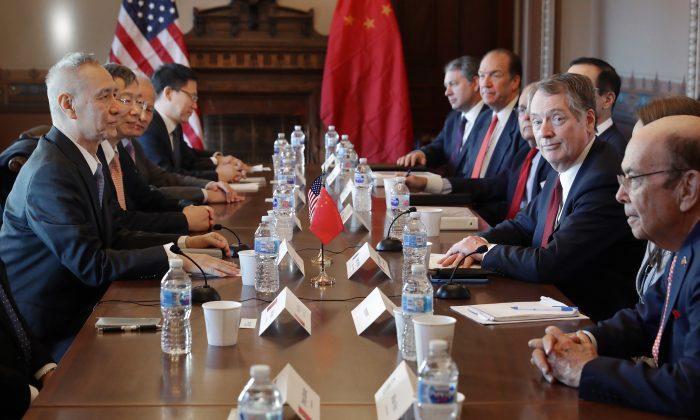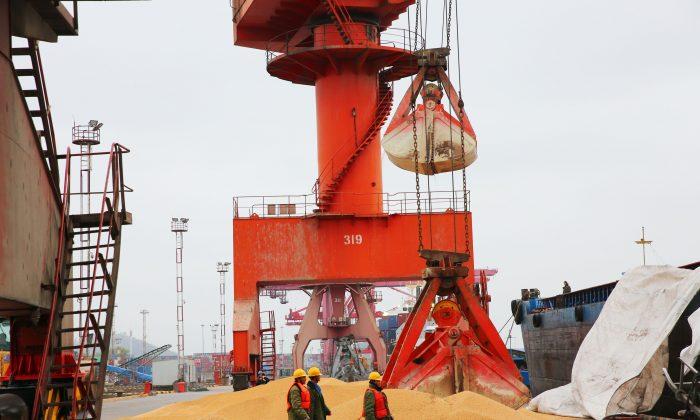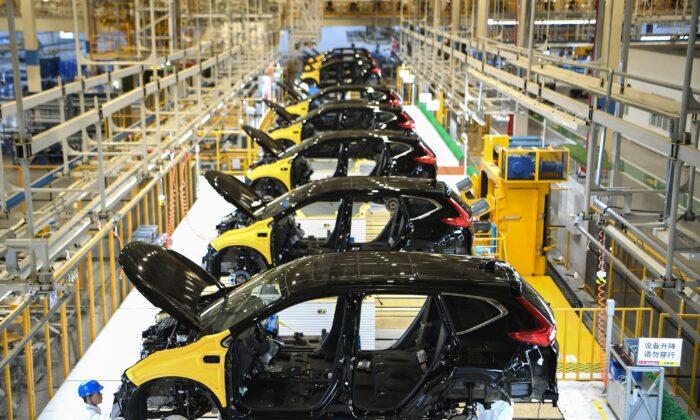News Analysis
The Trump administration’s 86-page Phase 1 trade agreement requires “regular meetings” to assure that China does not continue to “slow walk” compliance with its promises.
The Phase 1 truce commits China to respect U.S. intellectual property rights, not to engage in currency manipulation and to buy $200 billion in goods and agricultural products to help narrow America’s $419 billion trade deficit. In addition, it also revives President Trump’s semi-annual U.S.-China Comprehensive Economic Dialogue (CED) that met only once in July 2017 before the launch of the Sino-U.S. trade war.
The World Trade Organization (WTO) claims that the 500 trade disputes filed by members have been settled in an average of 14 months. Since the Clinton administration negotiated the November 1999 agreement paving the way for China’s entry, the United States has filed 124 WTO complaints and won about 85 percent of complaints.
But the Trump administration’s “2018 Report to Congress on China’s WTO Compliance” states that that the United States had been forced to “resort to the WTO’s dispute settlement mechanism to change problematic Chinese policies and practices” 23 times regarding: (1) local content requirements; (2) discriminatory taxes; (3) hundreds of prohibited manufacturing subsidies; (4) inadequate intellectual property rights and enforcement in the copyrights; (5) market access barriers; (6) restrictions on suppliers of financial information services; (7) export restraints on raw materials; (8) market access for foreign electronic payment services; (9) abusive use of trade remedies; (10) domestic agricultural commodities support; (11) protectionist tariff-rate quotas; (12) and discriminatory technology licensing.
The report concludes that China’s WTO entry has “proven to be ineffective in securing China’s embrace of an open, market-oriented approach to the economy and trade.” Furthermore, the WTO enforcement rulings have been ineffective because “Chinese government officials responsible for enforcement are often beholden to local interests and unwilling to enforce judgments against locally powerful companies or individuals.”
China’s ability to delay WTO enforcement rulings for years is based on retention of its “special and differential treatment” as a developing nation, despite having the world’s second largest economy. According to WTO developing nation status rules, China is legally allowed to provide subsidies in agriculture and set higher barriers to market entry than nations defined as developed, like the United States.
The Obama administration continued the U.S.-China Strategic and Economic Dialogue (S&ED) set up by the Bush administration to help “level the playing field for U.S. workers and firms.” But the S&ED’s eight meetings under Obama prioritized efforts to induce China to “deepen cooperation on global challenges such as a climate change.”
The S&ED was renamed as the “Comprehensive Economic Dialogue” under the Trump administration and was held in July 2017. That meeting between the U.S. and Chinese delegates “turned more into criticism and lost its focus on outcomes, according to news website Industry Global News24. It also added, “the process was later abandoned as it got argumentative and the Trump administration pressurized China for economic concessions.”
The next U.S.-China Comprehensive Economic Dialogue meeting is expected to be scheduled soon after the signing ceremony for the Phase 1 trade truce on Jan. 15 in Washington D.C., the Wall Street Journal reported. The Chinese authorities acknowledged that the semiannual “discussions” are part of the settlement, as the meetings provide a “platform for conversations that will ensure firm and smooth relationships ahead,” Industry Global News24 said.






Friends Read Free